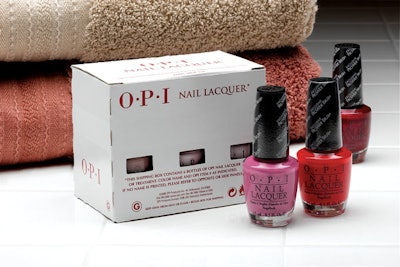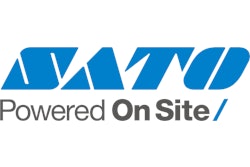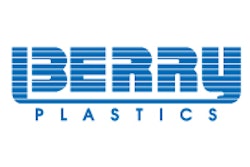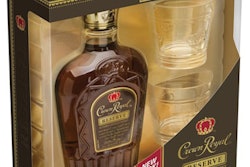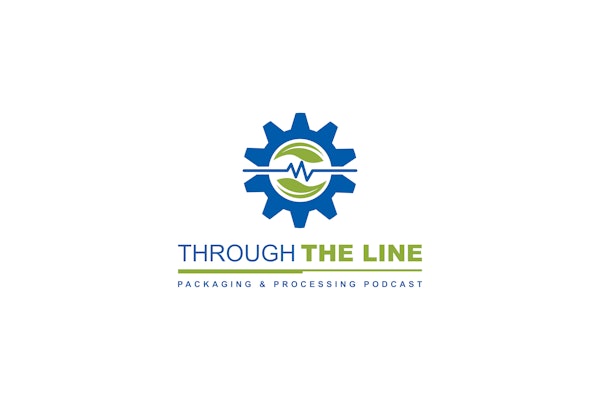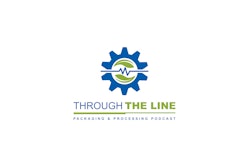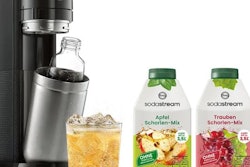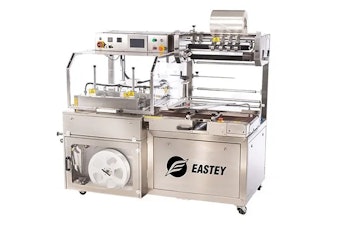Brand owners beware: Counterfeiters, diverters, and gray marketeers appear to be broadening their horizons.
“Drug companies, manufacturers of consumer electronics, and marketers of high-end perfumes have been inquiring about brand-protection solutions for years,” says Ken Branch, principal of Latitude 49 (760/972-7676), a security assurance company active in brand protection solutions. “The bad guys saw such products and packages as the low-hanging fruit. But now I’m hearing from packaged goods companies that make everything from food to motor oil. Any brand with value seems to be a target.”
At cosmetics manufacturer OPI Products, the threat to brand security comes not in the form of counterfeiting but rather by way of diversion. Randy Allen, vice president of operations at the North Hollywood, CA, firm, explains how diversion plays out in OPI’s world.
“We make product and sell it to licensed distributors who sell to beauty supply chains, beauty supply stores, or salons—with an applicable markup. If a distributor selling 10 bottles per salon sees a chance to sell 10,000 bottles to one mainstream retailer, that distributor may be tempted to discount the cost per bottle to the retailer and roll his inventory. He doesn’t get the high markup he gets by selling to salons, but by selling to a mainstream retailer in such high volumes, he’s more profitable than if he sold through approved channels. But he hurts the professional salon owner or nail technician for whom our products are made because they are badly undercut on price by a large retailer around the corner. That’s what we’re up against.”
Allen is working closely with a number of ink suppliers and manufacturers of marking and coding equipment to come up with better anti-diversion solutions that are covert in nature. He sees special promise in infrared inks and what he calls “narrow-spectrum readability.” He explains.
“Infrared inks are basically in the ultraviolet family. Unlike a broad-spectrum UV-type light such as black light, which makes everything readable, infrared inks are only excited and made readable by a narrow range of light frequencies. Ink manufacturers are currently looking at thousands of light frequencies that will excite only certain inks. As this work moves to commercialization, we’ll have a new crop of covert marking solutions at our disposal.”
The other key strategy that Allen is exploring is to incorporate a covert diversion-tracking code within the batch code. This twin code would be ink-jet-printed on a label that goes on the bottom of OPI containers. If diverters discover this code and try to remove it, they’ll be tampering not only with a diversion-tracking code, but also with a batch code that is incorporated into the diversion-tracking code. Removing a diversion-tracking code so that product can be diverted is not illegal, but defacing a batch code is.
“That takes it out of civil court and puts it into the criminal court system,” says Allen. “That’s huge, because in criminal court, the identity of the distributor who is doing the diverting will be revealed. That doesn’t happen in civil court cases that we bring against a retailer selling diverted product.”
Securing the chain of custody
Pharmaceutical manufacturers have a real brand-protection battle on their hands, as the World Health Organization estimates that counterfeit drug sales could reach $75 billion by 2010. For contract packagers, implementing a successful anti-counterfeiting strategy is especially challenging, says Alan Green, logistics director for DPT Laboratories, a contract developer of molecules as well as a contract manufacturer and packager that handles creams, liquids, gels, and powders.
“As contract manufacturers, we have to be all things to all people,” says Green. “And our customers are all over the map when it comes to what they think they need in the way of anti-counterfeiting measures. To further complicate things, we have a marketing arm with their own-brand product called Healthpoint. At the end of the day, we face a lot of opinions about what’s best and what isn’t. We have to listen to all of them.”
DPT is in the final stages of developing and implementing what might be called a pay-as-you-go plan. A 2D datamatrix bar-code track-and-trace system that goes right down to the smallest saleable unit will be the standard offering. On cases and pallets, the standard offering might be an RFID tag, so that when those cases and pallets come to a major distributor or wholesaler’s warehouse, they can be easily checked. But if a customer wants to go beyond the standard offering—suppose, for example, they want both a bar code and an RFID tag on individual units—DPT is looking at a menu of options that can be selected and paid for accordingly.
Green says the plan is to focus on prescription drugs first, though DPT also handles over-the-counter items. Partnering with DPT on the supplier side will be Blue Vector (www.bluevector.com) and either SupplyScape (www.supplyscape.com) or Axway (www.axway.com). DPT hasn’t gone commercial yet with its e-pedigree implementation. But here’s an illustration of how it might play out if tubed products, for example, are in production.
Each tube is assigned a unique serial number by either DPT or the contract customer. This number is carried in an RFID tag or 2D bar code on a pressure-sensitive label on the tube. Onto the corrugated case into which 12 tubes are to be inserted an operator applies an RFID tag; again, it’s carried on a pressure-sensitive label. As tubes move onto an accumulation table, a Blue Vector scanning device reads the 2D bar code or RFID tag on the tube and another Blue Vector scanning device reads the RFID tag on the case. So as the tubes are manually loaded into the case, Blue Vector software associates the 12 unique tube numbers with the tag on the case.
Later at DPT, the cases are put on a pallet and a Blue Vector reader associates the cases with a linear bar code or RFID tag that goes on the pallet. Finally, pallets are aggregated into an order. So a complete child/parent relationship linking tubes with cases with pallets with an order has been established.
While Blue Vector’s contribution is on the capture of the unique serialization numbers, SupplyScape’s or Axway’s e-Pedigree data management software is responsible for managing the chain of custody as the uniquely serialized product makes its way through the supply chain. Every time product changes hands—from drug manufacturer to DPT to Wholesaler 1 to Wholesaler 2 to Distributor—the unique identification numbers are sent into DPT’s Enterprise Resource Planning System (ERP). When the e-pedigree is built, the uniqe IDs are extracted out of ERP—along with all the other information that’s required, such as manufacturer’s name, lot code, expiration date, invoice number, etc.—and electronically sent to the next trading partner in the chain.
“On the packaging line and at the distribution center, Blue Vector’s technology is the vehicle by which we capture and authenticate the serialized numbers that go out the door,” says Green. “Their software rolls that data up into our business system and ultimately into our ERP, and that’s where the e-pedigree provider takes over. They take the pedigree information and collect the serialized number and keep that database and send that pedigree to the next owner of the item.
“The way we look at it, an anticounterfeiting solution is going to be a requirement in the very near future. Like putting a cap on a bottle, it’s simply something that’s done.”
What about repackaging?
Like DPT Laboratories, Med-Health Pharma operates in the pharmaceutical industry, too. But Med-Health Pharma is a repackager, not a contract packager.
Located in North Las Vegas, NV, Med-Health Pharma also has an ambitious e-pedigree plan in place, and it’s similar to DPT’s in that it includes SupplyScape as the provider of the chain-of-custody software. But before delving into how it works and who some of the other suppliers are, it’s useful to understand what kind of repackager Med-Health is. Or perhaps “will be” would be more accurate, as the firm is gearing up for a third-quarter launch in 2009. Even so, we’ll stick to the present tense here for purposes of simplicity.
The bottles that Med-Health Pharma repackages are for sale primarily to doctors. Bottles hold 10 to 30 doses, and the only drugs involved are the kind that are commonly prescribed by general practitioners for common ailments. It’s a relatively new concept known as “point-of-care dispensing,” which, as the name suggests, means patients receive their prescription drugs right in the doctor’s office—the point where medical care is given—instead of having to make a second trip to a pharmacy.
Med-Health Pharma buys the drugs in 100-count bottles from Med-Health Pharmaceutical Products (MHPP), a pharmaceutical wholesaler that’s right down the street from Med-Health Pharma. The two are allied, but Med-Health Pharma is still a separate and independent company. MHPP deals primarily in generics from drug makers such as Watson or Westward.
At Med-Health Pharma, bottles sent by MHPP are opened automatically on a machine from Bellatrx (www.bellatrx.com) that automatically upends bottles and cuts the bottoms off so the contents can be emptied into a bin. “The machine was originally developed,” says Med-Health Pharma director of operations Mark Hames, “for drug manufacturers who, due to a labeling mistake or cocked caps or some other flaw that made a container not suitable for shipment, needed to send large numbers of bottles through rework. But it meets our needs perfectly.”
Med-Health Pharma stores the bins of pills in inventory until an order for them comes in. At that point, the pills are taken into a packaging suite where they are repackaged into patient-sized high-density polyethylene containers holding anywhere from 10 to 30 doses. These are sold back to MHPP for sale to doctors.
When Med-Health Pharma swings into production, three brand-protection strategies will be deployed, says Sam Haddad, vice president of operations. One is from Kodak Security Solutions (www.kodak.com), whose Traceless System for Anticounterfeiting taps into a wide array of Kodak’s intellectual property and expertise in material science, digital imaging, and printing. In Med-Health Pharma’s case, a taggant is involved. It’s delivered to Med-Health Pharma embedded in the thermal-transfer ribbon that gets fed to a Sato (www.satoamerica.com) print engine. The print engine is mounted on a pressure-sensitive label unwinder from Herma (www.herma.co.uk), which in turn is mounted on an Eco-Wrap wraparound labeler from Bellatrx.
When the pressure-sensitive label runs through the Sato print engine, it receives the Traceless covert taggant as well as the human-readable copy and graphics that are required on the label. The taggant can only be viewed through a laser-based reader.
“If any bottle with labeling that identifies it as ours should ever be a cause for concern in the marketplace, we can scan the label with the Traceless System reader to verify whether or not it’s an authentic bottle that came from one of our production runs,” says Haddad.
The Sato print engine also imprints on each p-s label a unique ID, generated by Yottamark (www.yottamark.com), that’s printed in two formats: a 24-digit human-readable code and a 2D datamatrix bar code. Yottamark’s encryption engine securely generates unique serial numbers that can’t be repeated.
“It’s not that we prevent copying,” says Yottamark’s Elliott Grant. “But counterfeiters have no incentive to make one fake. They need to make an abundance of fakes to make any money. So with our technology, you’re looking for patterns of duplicates showing up in the field. If the same code ever shows up twice, we know there’s a problem because our algorithm can’t generate the same unique code twice. So we catch you if you try to make up a number, we catch you if you try to copy a bunch of numbers and seed them in the marketplace, and we catch you if you try to reuse numbers that have already been used.”
The third brand-protection strategy used at Med-Health Pharma is the e-pedigree data management software system from SupplyScape, which operates in a manner similar to what we saw in DPT’s case.
OPI, DPT, and Med-Health Pharma are just three of the many firms now coming to grips with the challenge of brand authentication. It’s a problem that won’t be going away anytime soon. Look for ongoing updates and insights from Packaging World as they become available.
